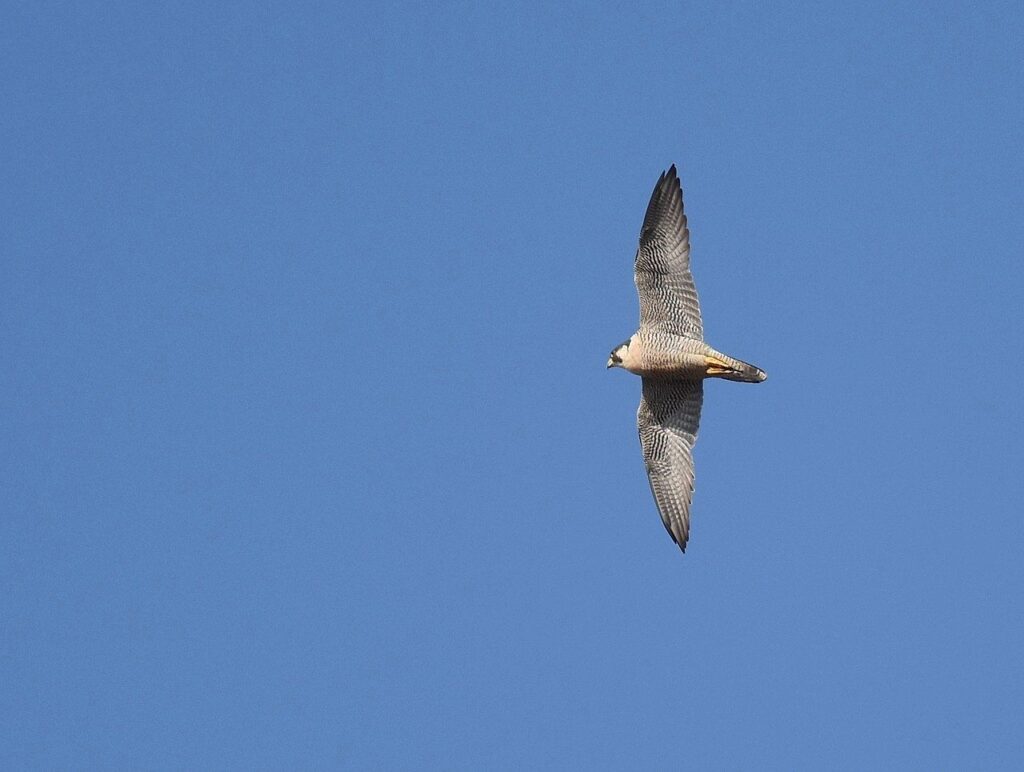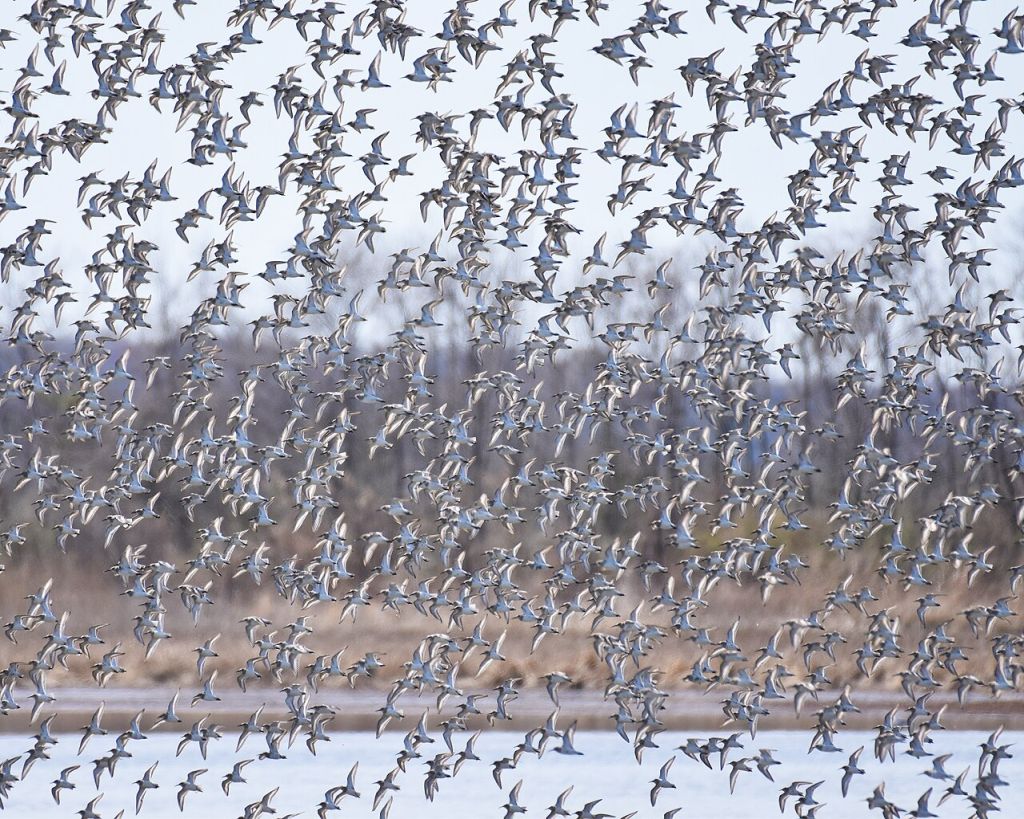
13 October 2023
When peregrine falcons migrate down the Pacific Coast in autumn they often pause at Canada’s Fraser River Delta to hunt shorebirds. Pacificnorthwestkate (@pnwkate) filmed one working a sandpiper flock at Roberts Bank.
Sandpiper Murmuration at Roberts Bank
— Pacificnorthwestkate (@pnwkate) October 12, 2023
My links – https://t.co/hR2LPCrpM4 #birds #nature #wildlife #stopRBCT2 #murmuration #sandpipers pic.twitter.com/VwJEiU6naC
Peregrines on the hunt hope to separate a single bird from the crowd because they cannot catch anything in such a tight flock. When a lone bird can’t keep up it becomes the peregrine’s dinner.

Dunlin flocking behavior on the Pacific Coast changed after the peregrine population recovered in the 1990s. A study at the Fraser River Delta in 2009 found that dunlin quickly learned it was unsafe to roost at high tide during the day because peregrines were on patrol. Instead they began to spend high tide flocking over the open ocean, flying continuously for three to five hours.
A new study, published this month in Phys.org, looked at the interaction from the peregrines’ perspective and found that the falcons haze the dunlin flocks to keep them moving. Peregrine hunting success improved at the end of those 3-5 hours of continuous flying because the dunlin had to stop for a rest.
The hunting data showed that dunlins were at greatest risk of predation just before and just after high tide, and spent most of the riskiest period flocking. However, there was a sharp increase in kills two hours after high tide, because the dunlins were not flocking despite elevated risk. [They were resting.]
— phys.org: Peregrine falcons set off false alarms to make prey easier to catch, study finds
So the dunlin changed their behavior to avoid peregrine predation and the peregrines changed their behavior to wear out the dunlin. Peregrines have more stamina that dunlin.
Read more about the peregrines’ hunting strategy at Phys.org: Peregrine falcons set off false alarms to make prey easier to catch, study finds.
(credits and links are in the captions)
Very interesting Kate. Thank you.